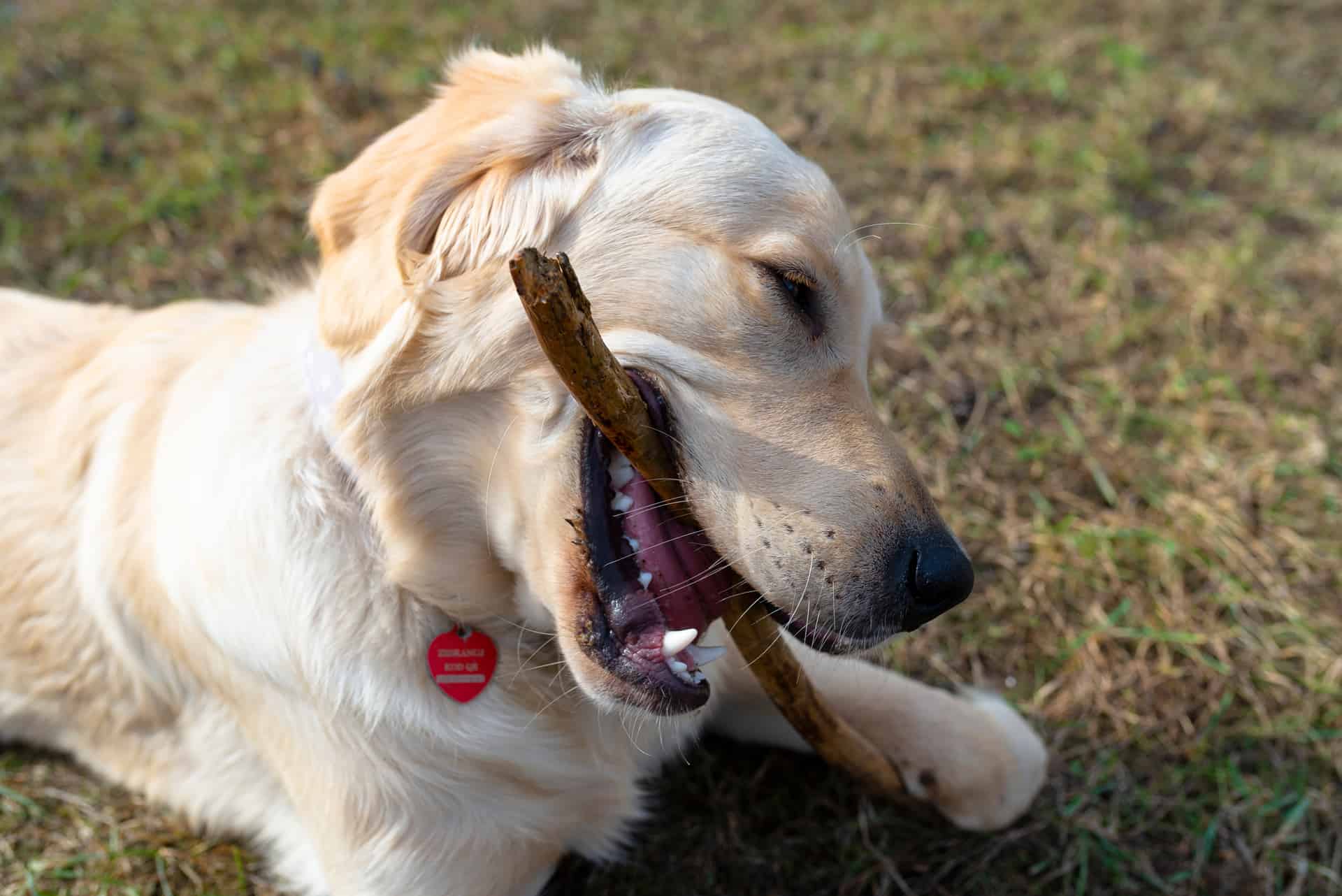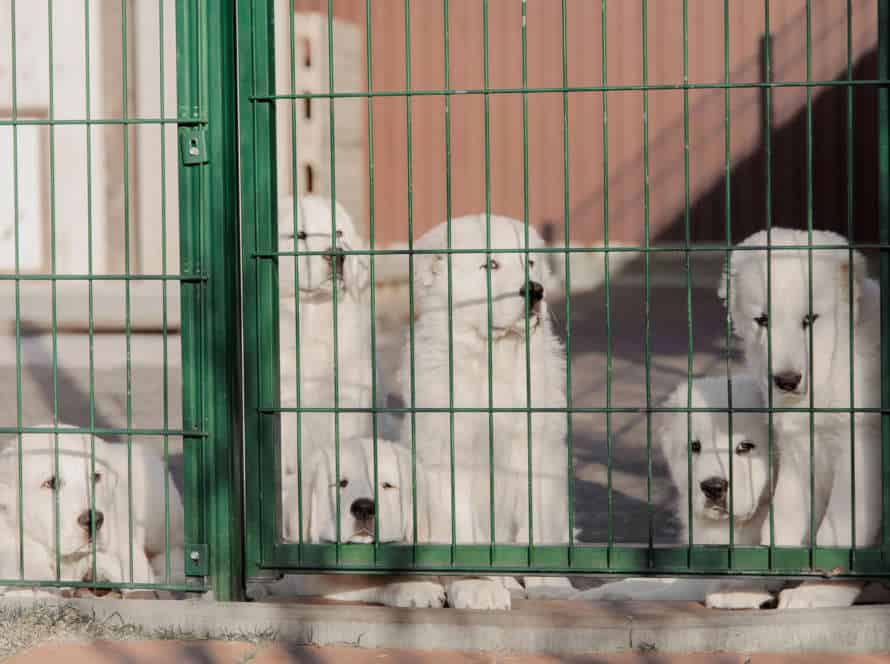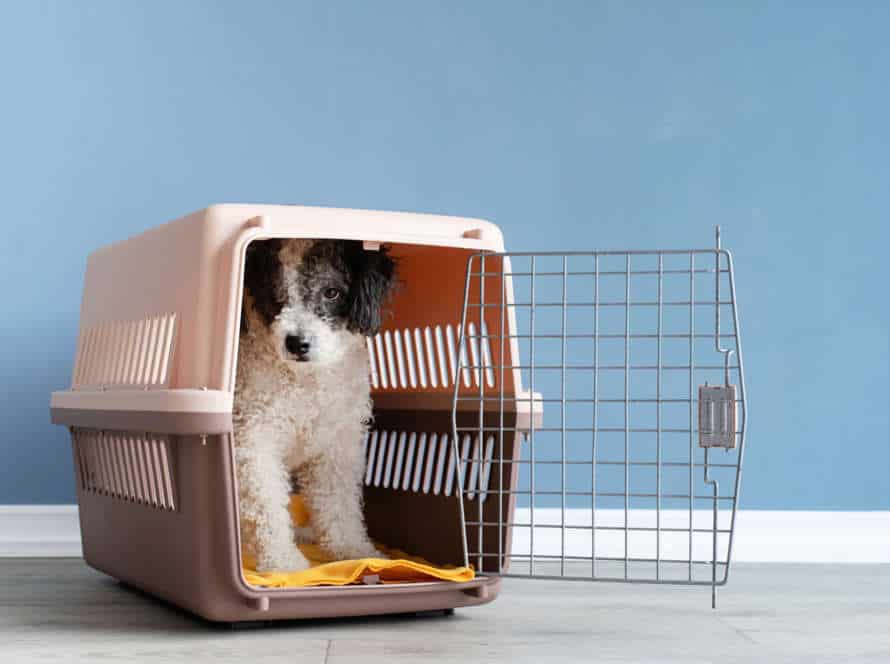When to Seek Professional Help for Adult Dog Biting Issues
If your adult pooch is having a biting habit, it’s essential to recognize when to get professional help. Here are some hints that say it’s time to call in an expert:
- If your dog is snarling, growling, or baring its teeth aggressively.
- If it’s biting people or other pets without warning.
- If it’s scared, anxious, or stressed, such as panting, pacing, or hiding; resulting in biting.
- If the biting is causing harm to people or other animals.
Calling for help from an experienced dog trainer, vet, or animal behaviorist can assist in understanding the root of the biting issue. Plus, they can provide tricks to correct it. Remember, biting can have serious results, so seeking help early is the only way to go.
Identifying the Severity of the Biting Issue
Dog biting is usual for adult dogs. But, the seriousness can be different. Sometimes, they just want to talk in a funny way. While other times, it can be because of fear, stress, or aggression. So, it’s key to understand when to ask for help from a professional. Here are the criteria to decide how serious it is:
- Motivation: Why did the dog bite?
- Level of Injury: How severe was the bite?
- Frequency: How often has the dog bitten someone?
- Context: What was happening when the dog bit?
Differentiating between play biting and aggression
Play biting and aggression are not the same. Play biting is something puppies and young dogs do when playing. Aggression, on the other hand, is more serious. It needs attention right away.
You need to know the severity of the biting. Are they just growling and wagging their tails? Or are they snarling and actually trying to hurt someone?
Identify the situation. If it’s aggressive and could be dangerous, get professional help. Trainers or vets can give advice and training for early intervention. This can stop the aggression from becoming permanent.
Understanding bite force and injury risk
Studying the bite force of dogs can help figure out how bad a biting incident might be. Depending on how serious it is, getting expert help could be needed.
Bite force differs with breed and size. Generally, bigger breeds have a stronger bite force. The average domestic dog’s bite force is 230-250 PSI (pounds per square inch). But, some breeds like Rottweilers can have up to 328 PSI.
In cases where a dog has bitten, it’s important to see how bad it is. Minor bites without any injury don’t need help from professionals. But, if the bite is serious, medical attention should be given right away. Also, if a dog is aggressive or biting often, it is essential to get help from a vet or animal behaviorist to stop future incidents.
Recognizing patterns of biting behavior
Identifying patterns of biting in dogs is important to determine the seriousness and know when to get professional help. Look out for these types:
- Fear-based aggression: Dog may bite if they feel scared or threatened. Signs of anxiousness such as yelping, growling or barking can be seen.
- Resource guarding: Biting can happen when defending their possessions like food or toys. Aggression can be seen when people or animals come close.
- Territorial aggression: Biting can occur when protecting their territory like home or yard. Barking or growling when strangers or other animals come near can be seen.
- Pain-induced aggression: Biting happens when in pain, ill or injured.
If your dog’s biting is concerning, or you don’t know the cause, seek professional help. A trainer or behaviorist can help identify the reason for aggression and give the necessary training and therapy.
Factors Contributing to Adult Dog Biting Issues
Dog biting can be a tricky thing. It can happen to adult dogs for various reasons. To stay safe, it’s essential to work out what is causing it. Reasons can be fear, anxiety, lack of socialization, earlier training, or health troubles. By understanding the source, an owner can decide when to ask for expert help.
Trauma or Abuse History
Trauma or abuse in a dog’s past can lead to biting issues as an adult. Signs to watch for are fear, anxiety, aggression, destructive behavior, excessive barking, and avoiding social interactions.
It’s essential to get help from a qualified dog behaviorist or trainer. They can help build trust and lessen fear and anxiety. Failing to do this can have serious outcomes like injury, legal action, or even euthanasia.
Provide a safe and cozy space for your pup, with plenty of food, water, and a place to sleep. Early intervention and professional help can greatly decrease the risk of serious dog-biting issues.
Breed-specific tendencies
Acknowledge breed-specific tendencies. Certain breeds have been bred for particular purposes and, thus, could show particular behaviors more often. To illustrate:
- Chihuahua: Defined by a big personality, chihuahuas may bite if they feel threatened.
- Dalmatian: Bred as carriage dogs, dalmatians need lots of exercise. Without attention, they might become destructive or aggressive.
- Pit Bull: Usually misunderstood, pit bulls are loyal and loving. However, they were bred for fighting and may display aggression to other dogs or animals.
In case your adult dog is biting, get professional help. A certified dog trainer or behaviorist can identify the cause of the biting and create a plan for addressing it.
Behavioral conditioning
Behavioral conditioning is a great way to modify a dog’s behavior. It’s safe and positive! Here’s how it can help with adult dog biting issues:
Counter-conditioning: This teaches a pup to feel positive emotions when in a situation that triggers aggression. For instance, if your doggo is hostile around children, counter-conditioning can help them link kids with treats and playtime.
Desensitization: This involves exposing the pup to a stimulus that triggers aggression in a controlled way. Gradually they will stop reacting aggressively. This is often used with counter-conditioning to help with fear or anxiety.
It’s important to remember that behavioral conditioning may not work with all dogs and situations. If your adult pup has severe biting issues or displays aggression towards humans, it’s best to get help from a professional.
Options for Managing Dog Biting Issues
Dealing with adult dog biting can be tricky. But don’t worry! There are many ways to get help. This article will explore the various options for getting assistance, such as seeking professional advice. Let’s take a look!
Training and Behavior Modification
Dog biting is a critical matter needing proper instruction and behavior alteration. Here are some ways to manage dog biting:
- Positive reinforcement training: Reward your pup when they show good conduct, such as not biting or restraining themselves.
- Desensitization training: Expose your dog to situations that may lead to biting and gently teach them to stay relaxed.
- Counter-conditioning: Alter your dog’s emotion to scenarios that could cause them to bite, like fear or aggression.
When should you get professional help for adult dog biting?
If your dog’s biting is serious or consistent, it’s essential to get expert help. A certified dog behaviorist or trainer can work with you and your pup to find out the root of the biting behavior and come up with a tailored training program. Pro tip- Training is the key to managing dog biting, but it’s wise to get professional help if the behavior persists or becomes serious.
Medication and Drug Therapy
If your pup is displaying biting behavior, medication and drug therapy may be worth considering. But first, consult a licensed vet and rule out any medical conditions or environmental factors causing aggression. Medication can help reduce anxiety and aggressive tendencies, but it’s not a one-size-fits-all solution. Common medications prescribed include anti-anxiety meds like fluoxetine, tricyclic antidepressants, and anti-seizure meds like gabapentin.
It’s critical to combine medication with behavior modification training and supervision for safety. In serious cases, seek professional help from a vet behaviorist or certified animal behavior consultant, to address underlying issues causing the biting.
Environmental Management
When it comes to biting issues with dogs, there are several environmental management options which can be helpful. Here’s what you can do:
- Limit Access: Restrict your dog’s movement by keeping them in a fenced area, crate, or other confined space. Ensure they don’t interact with others without your supervision.
- Supervise: Don’t leave your pup alone with children, strangers, or other animals. Keep an eye on them.
- Train: Train your dog through positive reinforcement to reduce aggression and help them socialize with people and other dogs.
- Muzzle: Use a muzzle if they are in public or around those they don’t know.
If your pooch shows severe aggression or bites often, get help from a professional dog trainer or behaviorist.
Determining if Professional Help is Necessary
Is professional help for adult dog biting needed? That’s a tough one. If your pup’s exhibiting signs of aggression or if there’s been a big boost in their aggressive behavior, it might be a good idea to get help from an experienced dog behaviorist or trainer.
This article will look at what to think about when making the decision on whether or not to get help for an adult dog’s biting issues.
Assessing the risk and potential for future incidents
If your adult dog has bitten someone, it is essential to look at the danger and potential for future events. To decide if professional help is needed, there are few things to think about.
The severity of the bite: If the bite is serious, leads to hospitalisation or needs stitches, professional help must be sought right away.
Triggers: Find out what triggers the bite so the problem can be solved. If your dog is triggered by loud sounds or types of handling, steps can be taken to stay away from triggers or let a professional manage it.
Your dog’s history: Look at if your dog has shown aggressive behaviour earlier. If yes, it might be best to get professional help to fix the issue.
Your own comfort level: If you are uncomfortable or feel unsafe around your dog after the biting event, it is important to seek professional help to ensure your safety.
By evaluating the risk and potential for future incidents, you can decide if professional help is needed for your adult dog’s biting issues.
Evaluating the effectiveness of current management strategies
If your adult pup has biting habits, it is imperative to assess the performance of current management tactics prior to making a decision to consult a specialist. Here are some steps you can take before getting professional help:
- Spot the triggers that cause your pup to bite and avert or handle them.
- Carry out a steady agenda for your pup’s daily activities such as eating, exercise, and rest.
- Train your pup using positive reinforcement methods to reduce the biting behavior.
- Confirm that your pup has good health and follows appropriate healthcare and grooming routines.
If these plans do not work, it may be time to get professional assistance from a vet or an animal behaviorist. An expert will help you evaluate the situation and suggest exact interventions to tackle the biting problem.
Understanding legal and liability implications of dog biting incidents
Dog biting incidents can have serious legal and financial implications for dog owners. Knowing the laws regarding such incidents can help reduce risks and make sure everyone stays safe.
If your adult dog has bitten in the past or shows signs of aggression, then it is best to consult a professional. They can help you find out why your dog behaves this way, and come up with a plan to modify their behaviour.
Growling, snarling, snapping, lunging and biting are all signs of aggressive behaviour. If you can’t control your dog or it has caused harm to someone or something, then it is vital to get help.
Although dog bites can lead to legal and financial repercussions, it is important to prioritize the safety of your dog and those around them. To responsibly deal with the situation, professional help is essential.
Seeking Professional Help for Adult Dog Biting Issues
Adult dog biting can be worrisome. If the dog has bitten someone, or is displaying signs of aggression, professional help may be needed. It is wise to understand why dogs bite and what solutions are available before seeking outside assistance. This article will review the signs and symptoms of adult dog biting and when it is time to get professional help.
Types of professionals who can help
Dealing with an adult dog’s biting? Professional help is key. There are several types of pros who can help:
- Vet: Identify any medical conditions causing the biting.
- Animal behaviorist: Evaluate your dog and recommend training techniques.
- Dog trainer: Work with you and your dog to address the underlying issues causing the biting.
- Dog bite attorney: Protect your legal rights if someone’s been bitten.
Seeking help early is essential to prevent further aggressive behavior.
What to expect from a professional consultation
Seeking help for adult dog biting is important. Here’s what to expect from a consultation with a professional dog trainer or behaviorist.
They’ll ask questions about the dog’s biting behavior – when, where and who’s present.
They’ll observe the dog’s behavior in different settings to identify triggers and stressors.
They’ll assess the human’s behavior towards the dog – identifying any reinforcing or punishing actions and giving advice on modifying it.
They’ll make a personalized training plan to tackle the underlying causes of the biting and provide ongoing support and guidance.
Plus, they’ll provide an estimate of the time and resources needed to change the dog’s behavior.
It’s key to seek help quickly to stop any serious harm from adult dog biting. A bite is a symptom of anxiety or aggression that needs addressing.
Pro tip: Pick a professional with good credentials and reputation. Keep an open mind to their suggestions, as each dog needs individualized plans to address their biting issues.
Choosing a qualified and reputable professional.
If your adult dog has biting issues, it’s essential to find an experienced, certified professional. Here’s what to do:
- Search for a pro certified in dealing with adult dog biting.
- Ask your vet, dog trainer, or pals with similar issues for recommendations.
- Check the pro’s credentials, education and training.
- Schedule a consultation or interview to discuss their approach and methods.
- Make sure the pro uses humane, positive reinforcement techniques.
- Invest time and money into the process to keep your dog safe and sound. Patience, commitment, and consistency are key.
- Picking a reliable pro is the first step to solve adult dog biting issues and having a strong bond with your pet.
Frequently Asked Questions
1. What are some signs that my dog’s biting issues require professional help?
A: Some signs that your dog’s biting issues require professional help include if your dog has caused injury to a person or another animal, if the biting is frequent or unpredictable, if the biting is accompanied by aggression or fearfulness, or if you feel overwhelmed or unsure of how to address the issue on your own.
2. What type of professional should I seek help from for my dog’s biting issues?
A: You should seek help from a certified professional dog trainer or a veterinary behaviorist.
3. How can a professional help with my dog’s biting issues?
A: A professional can assess your dog’s behavior and provide a tailored training plan to address the underlying causes of the biting. They can also provide guidance on managing and minimizing the risk of biting incidents.
4. What can I expect during a consultation with a professional for my dog’s biting issues?
A: During a consultation, the professional will gather information about your dog’s behavior history, assess your dog’s behavior in person, and provide a diagnosis and treatment plan. They may also provide ongoing support and monitoring.
5. How long does it typically take to see improvement in my dog’s biting behavior with professional help?
A: The timeline for improvement can vary depending on the severity of the biting behavior and the consistency of training. However, with commitment and consistency to the training plan, most dogs can see improvement in a few weeks to a few months.
6. How can I prevent my dog from developing biting issues in the future?
A: Preventative measures include socializing your dog early on, establishing clear rules and boundaries, providing plenty of mental and physical exercise, and seeking professional help in addressing behavioral issues as soon as they arise.







